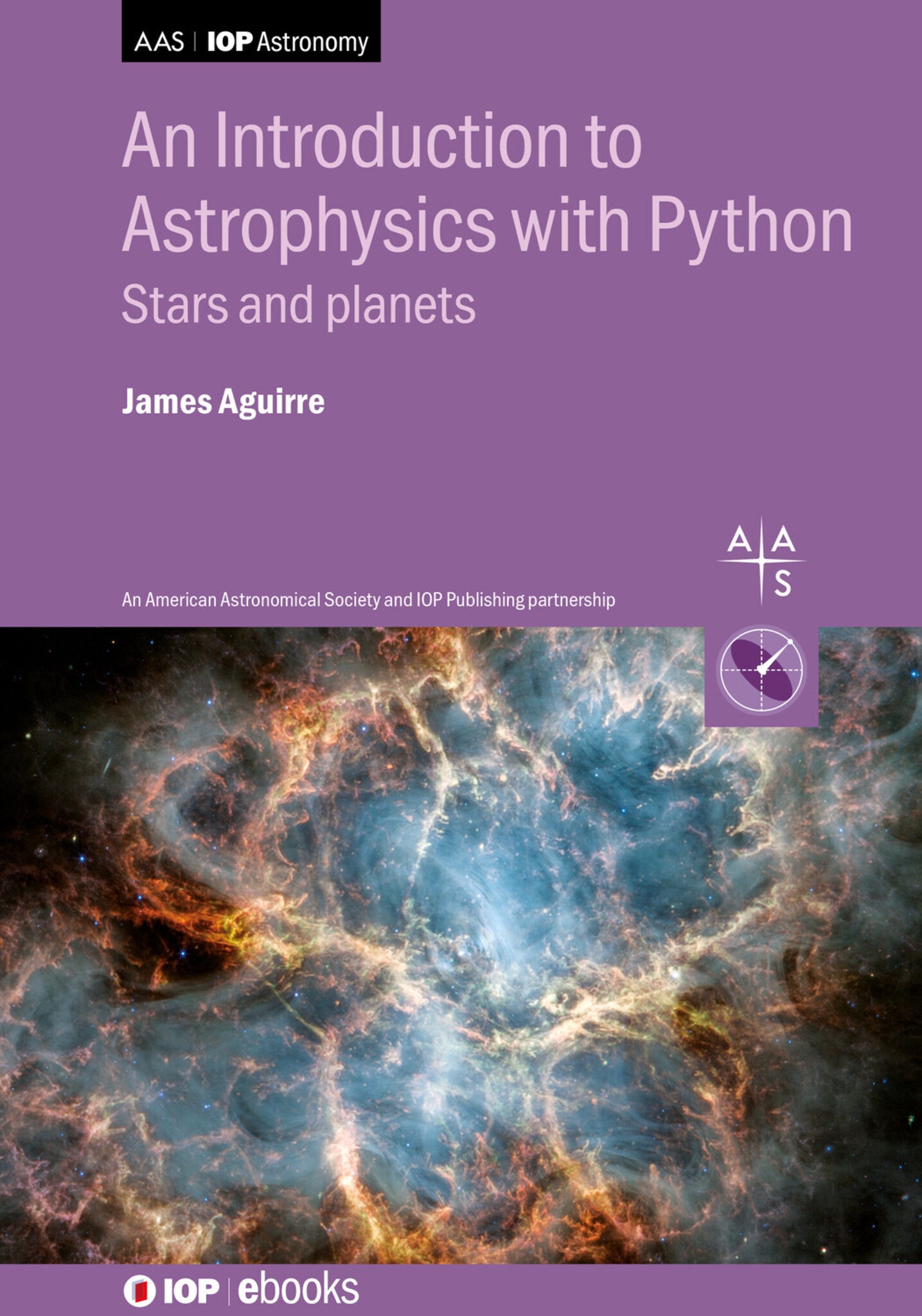We're sorry. An error has occurred
Please cancel or retry.
An Introduction to Astrophysics with Python

This book complements traditional astronomy texts by helping students apply core concepts to realistic problems using modern tools, especially Python, which is widely used in astronomical research. Rather than replacing foundational resources, it builds on them through hands-on, exploratory exercises designed for small-group work with instructor support. These exercises are open-ended and exploratory, encouraging deeper conceptual understanding. The material is presented in manageable sections to support active learning.
The subject matter focuses on stars and planets and provides all figures as Python scripts at a separate website, enabling students to create interactive visualizations and animations that enhance their understanding of astronomical phenomena.
Key features:
- An emphasis on key physical principles, and the notion of model building and testing in the physical sciences.
- A large number of examples and practice problems, including in-depth problems with multiple steps, and open-ended investigations.
- An emphasis on combining numerical calculations with analytical reasoning to solve astrophysical problems.
- Explicit instruction in how to understand and present quantitative information in graphical form, and supplementary example scripts for producing plots.
- Engagement with actual astronomical data and simulations.

SCIENCE / Space Science / Astronomy, Galaxies and stars, SCIENCE / Physics / Mathematical & Computational, Astronomy, space and time, Solar system: the Sun and planets, Theoretical and mathematical astronomy

Part I - Newton’s Gravity and Orbits
1. A Review of Newton’s Laws and an Introduction to Python
2. Kepler’s Laws of Planetary Motion
3. Polar Coordinates and Kepler’s Second Law
4. Gravity, Ordinary Differential Equations, and Nondimensionalizing
5. Setting Up the “Two-Body Problem”
6. Energetics in the Two-Body Problem
7. Velocities in the Two-Body Problem
8. Features of Orbits in the Two-Body Problem
9. Summary and Commentary
Part II - Interaction of Light and Matter
10. Light and the Electromagnetic Spectrum
11. An Introduction to Atoms
12. Atoms and Atomic Processes
13. Temperature and Thermodynamics
14. Thermal Radiation
15. Ionization and the Saha Equation
16. The Doppler Shift and Its Uses
17. Introduction to Radiative Transfer
18. Summary of Light, Matter and Temperature
Part III - Planetary and Stellar Structure
19. Surface Temperatures of Planets
20. Hydrostatic Equilibrium
21. The Main Sequence and the Hertzsprung–Russell Diagram
22. Absorption Lines in Stars
23. A Model of Stellar Structure




